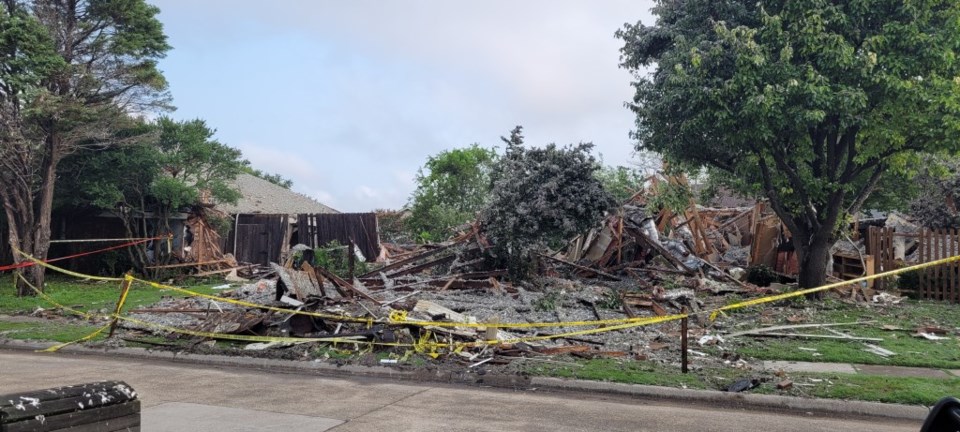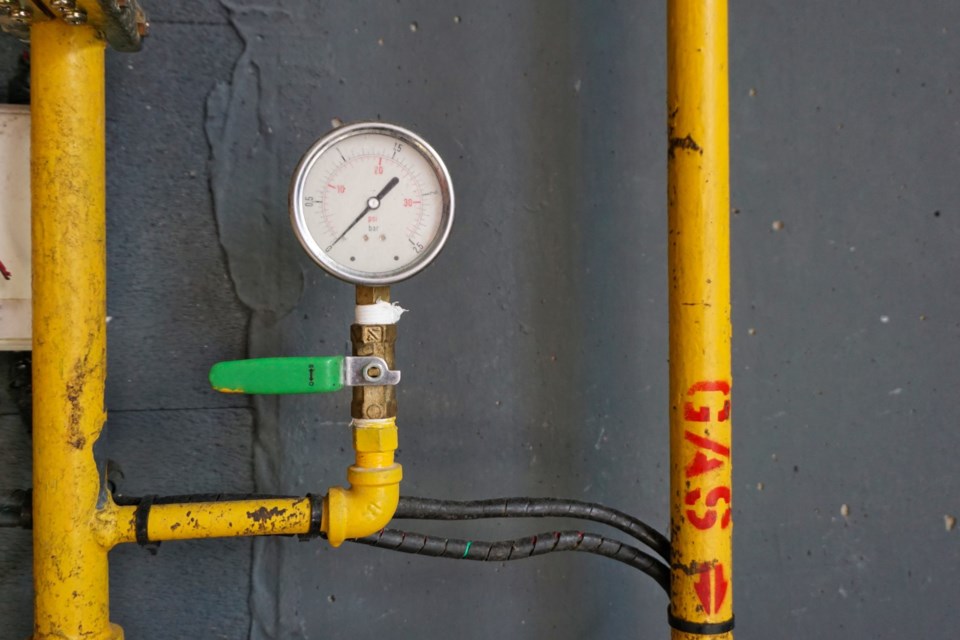The source of the home explosion on Cleveland Drive in Plano is being investigated as a possible gas leak. Authorities made that much clear within 24 hours of the explosion on Monday afternoon. (UPDATE: this story now reflects the update from Plano authorities that the Plano home explosion may have been intentional. Read the still developing story.)
With so much left to learn as the investigation continues, the conversation has turned to supporting the people affected -- and preventing this from happening again.

Local governments and fire departments work with gas companies like Atmos Energy to find and fix leaky gas pipes. Residents, renters and home owners alike, are asked to get out of their homes immediately when they suspect there is a gas leak and call 911.
For anybody who wants to know if they have a gas leak at home, here are a few tips and recommendations.
Check on the pipes that feed your appliances gas
Leaks can occur in any place, new or old, where pipes feed gas to appliances. Most DYI blogs and insurance organizations agree gas leaks happen when an appliance like a water heater or stove is not securely fashioned to gas lines that run to the home underground from distribution centers.
Residents are urged to double check and be sure they turn off gas stove tops when they’re not in use. Regularly check to see that pipes are securely fitted to appliance hook-ups.
Watch before you dig
There are other causes, like accidents during construction or digging in certain areas. Even household shovels can rupture lines running up to structures. Organizations like Texas 811 urge people to contact them before digging.
Trust your senses
The easiest way to detect a leak is by smelling it. As soon as that happens, it's time to leave. Before that, though, people can install detectors in their homes that will alarm residents when carbon monoxide or natural gas is present in the air. You might hear a hissing sound or notice bubbles when soapy water is placed near the source of the leak.
People can also experience physical health symptoms if they are breathing in tainted air. Home security company ADT says the common symptoms of natural gas poisoning including ringing ears, chest pain, nosebleeds, dizziness, difficulty breathing. Carbon monoxide poisoning can look and feel like red lips, pink skin, fatigue and dizziness.
Think you've discovered a gas leak?
Authorities say to leave your home immediately when you think you have a gas leak. According to Atmos Energy, do not flip any electrical switches in the home because that might trigger an explosion. Don’t start your nearby car, or use a cellphone or other electronics. Do not shut off the gas valves either.
Once outside and at a distance, call 911, the Plano Fire Department said this week. Capt. Peggy Harrell said all of Plano Fire-Rescue trucks and engines have “sniffers” aboard that can detect the presence of gas.
“The 911 call-taker will ask certain questions while the dispatcher sends the closest [firefighters] to the location,” Harrell said. “If the levels are within dangerous ranges they can pinpoint the area where the gas is leaking. If needed, our Hazardous Materials team from Station 5 will be called out.”
If the leak is found, the firefighters will call Atmos Energy to come and fix the leak, Harrell said.




